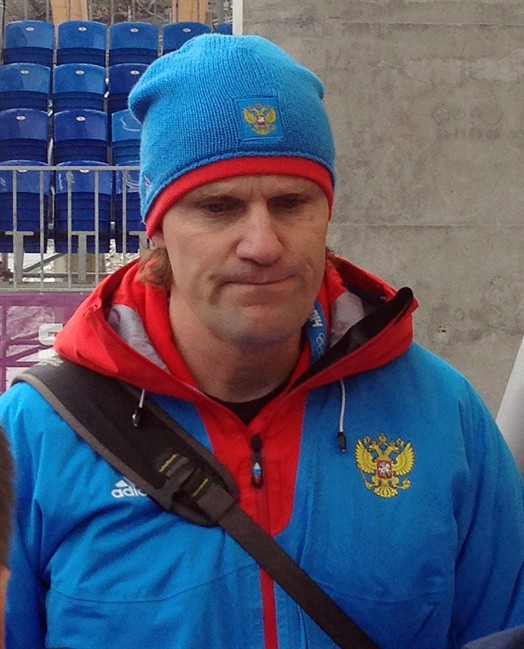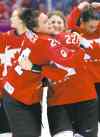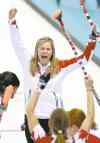Russia’s Olympic resurgence comes at expense of Canadian team in Sochi
Advertisement
Read this article for free:
or
Already have an account? Log in here »
To continue reading, please subscribe:
Monthly Digital Subscription
$1 per week for 24 weeks*
- Enjoy unlimited reading on winnipegfreepress.com
- Read the E-Edition, our digital replica newspaper
- Access News Break, our award-winning app
- Play interactive puzzles
*Billed as $4.00 plus GST every four weeks. After 24 weeks, price increases to the regular rate of $19.00 plus GST every four weeks. Offer available to new and qualified returning subscribers only. Cancel any time.
Monthly Digital Subscription
$4.75/week*
- Enjoy unlimited reading on winnipegfreepress.com
- Read the E-Edition, our digital replica newspaper
- Access News Break, our award-winning app
- Play interactive puzzles
*Billed as $19 plus GST every four weeks. Cancel any time.
To continue reading, please subscribe:
Add Winnipeg Free Press access to your Brandon Sun subscription for only
$1 for the first 4 weeks*
*$1 will be added to your next bill. After your 4 weeks access is complete your rate will increase by $0.00 a X percent off the regular rate.
Read unlimited articles for free today:
or
Already have an account? Log in here »
Hey there, time traveller!
This article was published 22/02/2014 (4243 days ago), so information in it may no longer be current.
SOCHI, Russia – Russia’s Olympic team rebounded from a dismal performance in 2010 to take medals away from Canada in 2014. Some Canadians helped them do it.
With a day remaining at the Sochi Olympics, the host Russians won three medals to vault over the United States and top of the overall standings at 29. Canada was shut out Saturday and slipped from third into a tie for fourth with 24.
Russia won just 15 medals at the 2010 Vancouver Games and its three gold was the lowest since the dissolution of the Soviet Union.

In Sochi, they’ve won medals in their traditional strengths of figure skating, biathlon and women’s speedskating, but surged onto the podium in non-traditional events like freestyle skiing, snowboard and short track.
Russia’s stated goal was to finish top three in the overall medal count and win 14 gold, which would equal a Winter Games record set by Canada in 2010.
Russia will nail the first target, but not the second. At 11 gold Saturday, there were only three medal events remaining and Russia didn’t reach the men’s hockey final.
There have been sports in which Canada’s contenders didn’t produce a medal and the Russians did: two-man bobsled, the luge team relay, men’s snowboard cross, men’s cross-country team pursuit and a pair of men’s short-track distances.
It’s a common practice in international sport to poach expertise from other countries, and there’s pressure on host countries to recruit the best in the business to enhance their medal count at their own Games.
Canada was no exception prior to 2010 with one example the hiring of luge coach Wolfgang Staudinger away from the Germans. But Canada developed home-grown, know-how for Vancouver and Russia hired some of it away.
Two-time Olympic medallist Pierre Lueders coached the Russian bobsled team to gold in the two-man event. Moguls coaches Stephen Fearing and Jim Schiman got a Russian to bronze in men’s moguls behind Canadians Alex Bilodeau and Mikael Kingsbury.
Darcy Downs is a coach with the Russian aerials team. Guy Thibault was a coaching consultant for their short-track team in 2012 before he joined the U.S. team.
But the Canadians who had the greatest influence on Russia’s overall performance weren’t in Sochi. They have watched the show from their couch in Vancouver.
The Russian Olympic Committee hired sport power couple Todd and Cathy Allinger of Vancouver in 2010 after their significant contributions to Canada’s medal haul in Vancouver.
Cathy Priestner-Allinger was the first Canadian woman to win an Olympic speedskating medal in 1976. She and Todd co-authored the report that revolutionized how Canada’s athletes prepare to compete in Olympic Games.
Their 2004 report was the template for Own The Podium, the five-year, $117-million plan to help Canada win the most medals at their own Winter Games. Canada finished third in the overall medal count in 2010 with 26, but won the most gold with 14.
Todd also headed up Top Secret, an $8-million sport science and technology program to give Canadian athletes the best equipment and clothing, as well as the best mental and physiological preparation.
Cathy was vice-president of sport and Games operations for the Vancouver organizing committee. She had served in a high-ranking managerial position for the Turin organizing committee in 2006, as well director of ice sport in Salt Lake City in 2002.
The Allingers were not employed in Canada’s sport system when the Russians came calling.
Using the template they established for Canada’s preparation for 2010, the Allingers scouted and reviewed Russia’s athletes, teams and sport federations and made recommendations to the ROC.
“As our targeted plan was designed to achieve, Russia has returned as a winter sporting power and is once again among the top five winter sport nations in the world,” Cathy told The Canadian Press in an e-mail.
“Having worked with three of those top five nations — U.S., Canada and for the past four years, with Russia — we are thrilled to see our podium framework prove successful once again, with amazing results possible in any sport and in any country.”
Their multiyear contract with the ROC ends in March. When asked in January if the organizing committee for the 2018 Winter Games in Pyeongchang, South Korea, had approached them, the Allingers said no.
When asked again this week, Cathy said “regarding future projects, we are exploring possibilities and options.”









